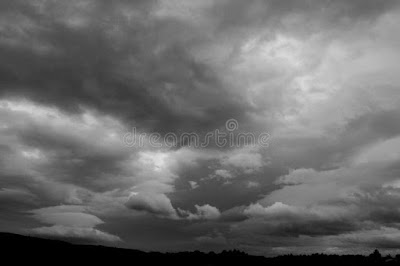Bronxville.
The rain is scant at this very moment,
sky almost blue, but it comes and goes
in pelting drops. Here, just now, balls bounce
against air: red, yellow, green, until I see
they decorate a transparent, plastic umbrella,
a dome of delight where safe from random drops
a child dances down the sidewalk. A skinny stick
of a kid, maybe nine, in a long, silly raincoat
mom must have insisted upon. But who cares.
School’s out now, the umbrella is fun and
soon I’ll be home to snacks and hugs. Oh,
such strong hugs.
Nashville.
One image stays. A face behind a school bus window.
A child, a little girl, the caption says. Yes, that’s right,
but when I first see the picture, she has no age. Her lips
are bent, stretched open so wide side-to-side they eat
into her cheeks. Her chin is a crinkled dimple squashed
against the glass, her frown pulls a hard vee down
between her eyes to her hot red nose. Her hand presses
the glass, pushes away what she left outside. I don’t
hear her scream. Of course not, I’m looking at a picture
taken from outside the bus. The child is frozen behind
the window glass in the red heat of wordless pain. She
may scream, may break down and cry, but not yet.
The photographer—what astonishing luck—releases
this moment of unbearable distortion—her little face,
the rest of her life. And now I notice, stenciled above
the bus window, a descriptor—Emergency Exit. There
are no emergency exits. Voice the scream for her. Take
to the streets. Make it so children dance as they go home.
Editor's note: The photograph described in the second section of this poem accompanies Marsha Owens' March 27 prose poem in
The New Verse News.
Alice Campbell Romano lived a dozen years in Italy where she adapted Italian movie scripts into English, married a dashing Italian movie-maker, made children, and moved with the family to the U.S., where they built, she wrote, and the children grew. Her poems have appeared in—among other venues—Prometheus Dreaming, Persimmon Tree, Pink Panther Magazine, Orchards Poetry, New Croton Review; Beyond Words, Writing in a Woman's Voice, Quartet Journal, Instant Noodles Devil's Press, Moon Shadow Sanctuary Press. In January, she was awarded HONORABLE MENTION in The Comstock Review's 2022 Chapbook contest, "...not an award that we give every year, but an honor set aside for a few manuscripts." Alice swooned.












